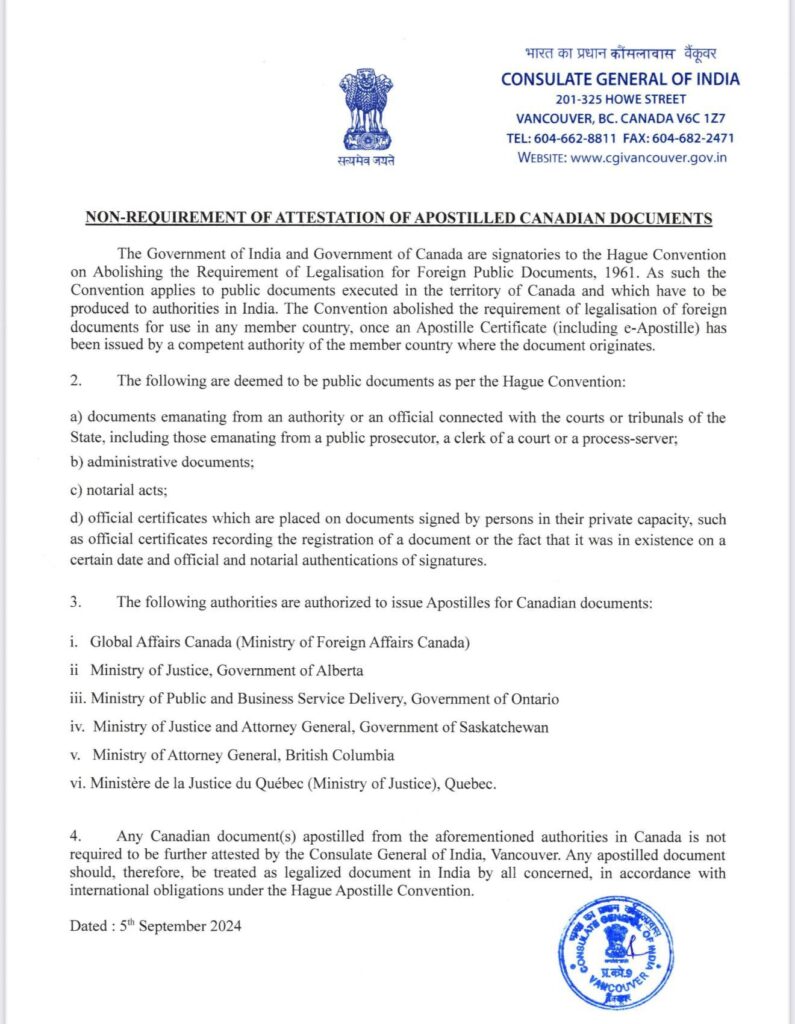Vancouver (National Times): In a significant development aimed at streamlining documentation processes for Indian nationals in Canada, the Consulate General of India in Vancouver has announced that Canadian documents bearing an apostille do not require further attestation for use in India.
The update comes as both India and Canada are signatories to the Hague Convention of 1961, which abolished the need for legalisation of foreign public documents between member countries. Under this agreement, apostilled documents from Canada are now recognized as fully legalized in India, eliminating the need for additional certification by Indian consulates.

According to the notice, the types of public documents covered under this rule include:
- Official documents from government or judicial authorities,
- Administrative documents,
- Notarial acts, and
- Official certificates attached to private documents such as those recording registrations or confirmations of existence.
The following Canadian authorities are authorized to issue apostilles:
- Global Affairs Canada (Ministry of Foreign Affairs Canada)
- Ministry of Justice, Government of Alberta
- Ministry of Public and Business Service Delivery, Government of Ontario
- Ministry of Justice and Attorney General, Government of Saskatchewan
- Ministry of Attorney General, British Columbia
- Ministère de la Justice du Québec (Ministry of Justice), Quebec
The Consulate clarified that any document apostilled by these agencies is to be considered fully legalized and will be accepted by Indian authorities without further consular attestation.
This decision is expected to simplify procedures for Indian citizens dealing with cross-border documentation and reduce redundancy in the legalisation process, in line with India’s international commitments under the Hague Apostille Convention.

